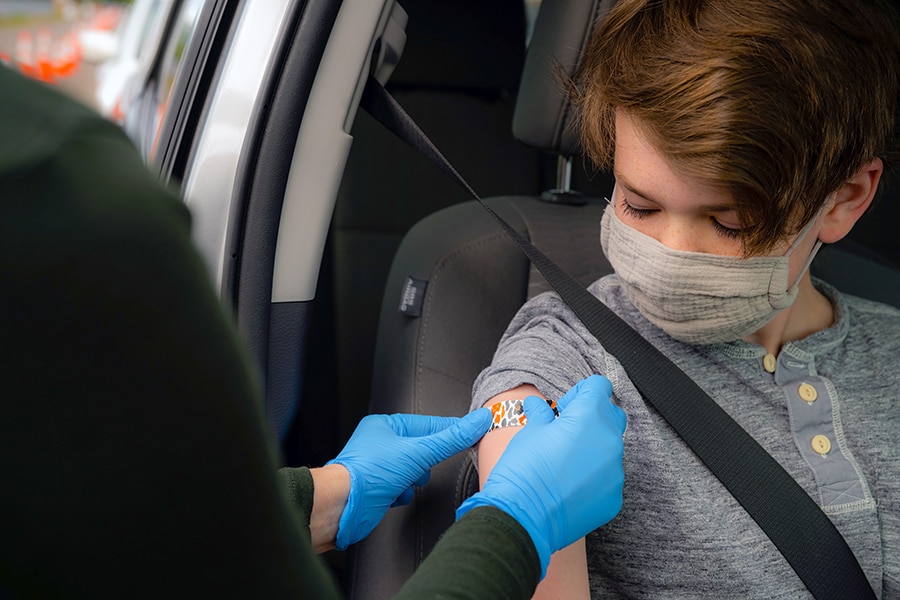
Immunity to the coronavirus may persist for years, scientists find
Studies suggest that most people who have recovered from Covid-19 and were later immunised will not need boosters while vaccinated people who were never infected most likely will need the shots
 Elias Israelsen, 12, receives their first COVID-19 vaccine on Thursday, May 13, 2021, at Community Health Center, Inc., in East Hartford, Conn. Immunity to the coronavirus lasts at least a year, possibly a lifetime, improving over time especially after vaccination, according to two new studies; Image: Christopher Capozziello/The New York Times
Elias Israelsen, 12, receives their first COVID-19 vaccine on Thursday, May 13, 2021, at Community Health Center, Inc., in East Hartford, Conn. Immunity to the coronavirus lasts at least a year, possibly a lifetime, improving over time especially after vaccination, according to two new studies; Image: Christopher Capozziello/The New York Times
Immunity to the coronavirus lasts at least a year, probably much longer, and improves over time especially after vaccination, according to two new studies. The findings may help put to rest lingering fears that protection against the virus will be short-lived.
Together, the studies suggest that most people who have recovered from COVID-19 and who were later immunized will not need boosters. Vaccinated people who were never infected most likely will need the shots, however, as will a minority who were infected but did not produce a robust immune response.
Both reports looked at people who had been exposed to the coronavirus about a year earlier. Cells that retain a memory of the virus persist in the bone marrow and may churn out antibodies whenever needed, according to one of the studies, published Monday in the journal Nature.
The other study, which is also under review for publication in Nature, found that these so-called memory B cells continue to mature and strengthen for at least 12 months after the initial infection.
“The papers are consistent with the growing body of literature that suggests that immunity elicited by infection and vaccination for SARS-CoV-2 appears to be long-lived,” said Scott Hensley, an immunologist at the University of Pennsylvania who was not involved in the research.
©2019 New York Times News Service




